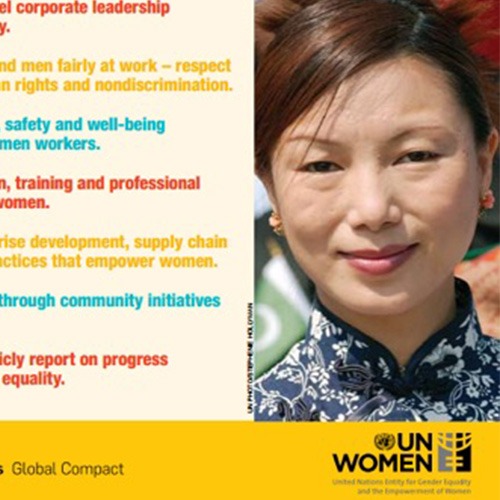Local Women Are The Key To Transforming War-Torn Countries

CTG are working towards getting 30% female employees in the countries that we work on by 2020 – what are the challenges in our way?
The UN’s International Day of Rural Women 2016 is on 15 October every year.
This year I want to help others understand why I am so passionate about the critical importance of employing women in the field. In my opinion women are essential in building peace, improving the economies of war-torn countries and to achieving long term viability in fragile countries. Women are the key to unlocking many of the world’s problems, but the challenges we face in the steps to involving them are frustrating.
I want to share stories of what we are doing in places such as Gaza, Somalia and Afghanistan and highlight some of the issues, but also look at the bigger picture and ask – why is more not being done to involve women and how can we address this? Now.
The challenges in hiring and involving women are numerous – I cover just some of these below. Organisations working in crisis environments must offer more long-term opportunities to women – it’s hard but each one of us who does, helps! And the international community needs to do more around advocacy to ensure families permit their wives, sisters and daughters to work.
So what are the challenges?
When we run outreach programmes, we absolutely need to employ women – quite apart from wanting to. As an example we had to recruit 600 females in Afghanistan for the presidential elections; these women were required to ensure an equal right to vote for all, as these employees searched women before they went into the voting booths – this is not a job that a man could have done.
As a contractor who provides staff, surprisingly none of our clients’ KPIs have included requirements to employ a certain number of women. We have set our own KPIs and objectives in this regard.
These are the challenges we and others face when recruiting rural women – I’d love others to share their stories about doing this well.
1. Duty of care to staff through tribal leaders
Our first concern is always to provide a duty of care to anyone in our employment. The opportunities we provide are often high risk, given the conflict/disaster environments we work in.
Without fail, we have to work with the right tribe and the tribal leaders for each campaign to ensure the elders/clan leaders/sheikhs are supporting us – important everywhere, but essential in dangerous areas, such as Helmand Province. Their support means the women and our colleagues can move around safely. While most tribal leaders are supportive of what we do, not all are. How do we get them all on board?
2. Permission from the family
It is one thing to recruit a team of women, but they can only work with the permission of a male member of their family. Understandably, fathers and brothers worry about safety and often withhold this. For many women, they normally stay at home with the family in order to be safe, so a job will mean it is the first time they have travelled around. How do we get male family members to be supportive of women working?
3. Hiring chaperones
In Afghanistan, we were required to hire a chaperone to accompany our female workers – a male member of their family. This makes it doubly hard as many of the men do not want to travel, are already working or may wish to be paid. How can we encourage more men to support their sisters and wives?
4. University job fairs
We do visit job fairs at universities, the women are bright and often highly qualified – but lacking in substantive work experience. Universities are generally considered very safe places to be, and families have put every penny into educating their children. How can women be getting more work experience alongside their education?
If we take Somalia as an example – where we run a food monitoring programme – the challenges we face in recruitment include:
· The Lower Shabelle area is really difficult to access, even with the support of clan leaders. Asking people to move around in this area is asking a lot – few even leave their houses. We literally knock on people’s doors to see if we can find people to recruit.
· Gaining the trust of families.
· There are no women’s groups.
Many have moved their families out of the country for safety and their wives and sisters are now migrants and refugees overseas. We find there is virtually no female diaspora returning to Somalia to work.
Where women remain, they are often now the breadwinner in the family, having lost the male members of their family – so they are really keen to work. This video is of one of our team in Mogadishu, Anisa Osman Dirie, who was born in Somalia to a father who was passionate about educating his daughter and giving her opportunities. Anisa’s father was tragically killed earlier this year by Al Shabab and Anisa proudly talks about how she is now the breadwinner for the family and can look after them. Her father’s far-sightedness means her family will survive.
We are really keen to employ women and would love to employ many more than we do. Of course this is part of CTG’s commitment to the UN’s sustainable development goals for women but, even more, it is because they are really excellent employees. They are very bright – most of our women are graduates, many with Masters – and they relish the chance to work. They get on with the job, don’t complain and cause very few problems.
Salwa Nasser is another CTG colleague who is highly qualified with an MSc in Civil Engineering and working as a Quantity Surveyor in Gaza. She recently emailed me to say: “It is a fact that the Gaza Strip has been in extremely difficult situations economically and politically… [We need] to change the point of view towards the women in work fields where there are dozens of male workers and I believe that women can work side-by-side to men in all fields and accelerate the economy wheel.”
I agree with Salwa and Anisa; employing more women will help long-term to bring economic survival and longer term, peace. Having women active and contributing to their country is imperative.
Today I want to celebrate all the amazing women working for CTG and alongside us as we come up to International Day of Rural Women. I would love to hear what others are doing to encourage more women to apply for jobs and from women in these fragile and conflict affected countries about what infrastructure will help them to work for international organisations.
If you are a woman and wish to work for CTG (and of course men are welcome too!) our vacancies are listed on our careers page and some vacancies are on Linkedin. Please also connect to our team on careers@ctg.org.
Photo credit: Salwa Nassar. Here Salwa is shown on site in Gaza. Salwa is a Palestinian Civil Engineer working in Gaza for CTG on redevelopment projects.
CTG is dedicated to making SDG 5, Gender Equality, a reality and has created the Female First initiative which aims to raise the number of female employees in the field to 30% by 2020.



